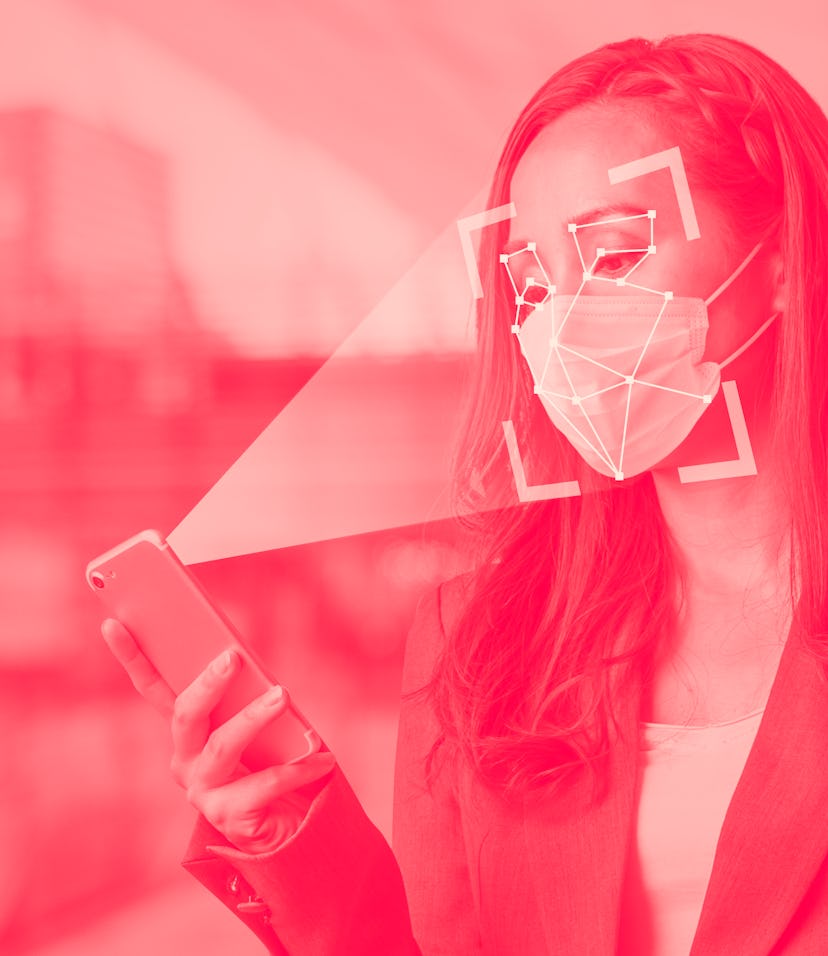Tech
Clearview AI is expanding its toolset to unmask protestors

10B
Images now available in Clearview's facial recognition database
As invasive as most facial recognition technology is, Clearview AI’s is much, much worse. The startup’s software goes above and beyond to scrape the internet for any and all traces of a person’s face, scanning platforms like Twitter, Facebook, and YouTube for its extensive databases. It then sells access to those databases to anyone willing to pay up. That includes law enforcement, of course, but also federal government entities and public agencies.
Terrified yet? Well, if not, let’s try this one on for size: Clearview has now collected more than 10 billion images from across the internet. Ten billion images. Clearview CEO Hoan Ton-That tells Wired that the company has improved its web-crawling techniques and machine learning algorithms to make its tools more powerful and accurate than ever before.
Ton-That demonstrated the tool to Wired by taking a photo of a reporter via the company’s smartphone app. Dozens of images from websites around the world popped up — pictures of the reporter going back more than a decade.
So yeah. Pretty terrifying. Oh, and did we mention the company is adding more tools to its arsenal, too?
Deblur and unmask — Clearview’s main draw is still that massive database, but the startup is expanding its toolset, too. The company is developing, for example, “deblur” and “unmask” tools that should make it easier to identify people even if their faces are covered.
The unmask tool uses Clearview’s top-tier machine learning algorithms to infer what the bottom half of a person’s face would look like — even if covered by a mask — using patterns found in other images. The deblur feature would allow Clearview’s customers to sharpen images and make it easier to identify faces. Both tools are in early stages but could prove another powerful draw for Clearview’s contracts. It’s unclear how accurate or effective they might be. Machine learning is likely no match for something like Blanc’s futuristic full-face mask, for example.
Perfectly legal — Clearview’s approach to facial recognition is even brasher than most, basking in a total disregard for individual privacy. As such it’s drawn plenty of criticism from tech experts. New York and California have both brought class-action lawsuits against Clearview, and the ACLU is suing the company in Illinois. Ton-That hears this vocal criticism and doesn’t care. He thinks the majority of people support using facial recognition to solve crimes, even at the expense of personal privacy. And to those who don’t agree he cites the first amendment.
“There is also a first amendment right to public information,” he said in an interview after YouTube sent the company a cease-and-desist. “So the way we have built our system is to only take publicly available information and index it that way. So that’s all I can say on the matter.”
Big tech wants out — First amendment rights aside, Clearview is riding its success on thin ice. Many of Big Tech’s most influential companies, including the likes of Google, Facebook, and Twitter, have sent explicit cease-and-desist letters to Clearview. These companies argue that Clearview’s image-scraping tools violate their sites’ terms of service.
Objections from tech’s biggest corporations and privacy experts have not been enough to slow Clearview’s invasive scraping methods. If anything, it seems blowback is just motivating Ton-That and his team to develop further. The company’s reach extends with every passing day; as you read this article that massive database keeps growing. If you have any sort of internet footprint, your face is likely already in there at least once. And, until lawmakers step in, Ton-That will just keep expanding Clearview until no corner of the internet is safe.